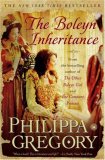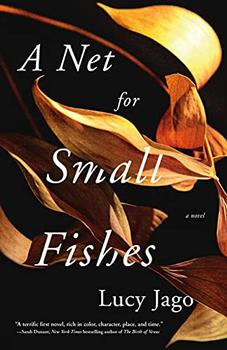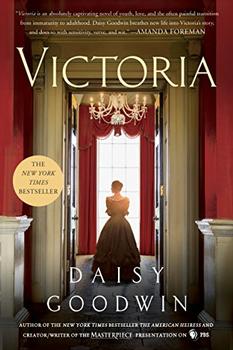Summary | Excerpt | Reading Guide | Reviews | Beyond the book | Read-Alikes | Genres & Themes | Author Bio

Once again, Philippa Gregory visits the
courts of Tudor England. Written in the alternating voices of the three
key protagonists "in an attempt to bring to life these three very contrasting
young women in their attempts to survive and profit in these dangerous times",
Gregory challenges the historical record that has typecast Henry VIII's fourth
wife, Anne of Cleves, as sexually repellent and his fifth wife, Katherine
Howard, as a "stupid slut" (in the words of one modern historian), while also
exploring Jane Boleyn's role in the machinations of court life during this
turbulent period.
As Gregory explains in her essay about The Boleyn Inheritance (which
you'll find on the reading guide page at BookBrowse), the most likely reason
Henry took so against Anne was that she inadvertently humiliated him when they
first met. Henry considered himself a bit of a lad and liked nothing better than
to disguise himself as a commoner so he could go about unnoticed. Of course,
anyone who was anyone knew who he was and humored him by pretending they didn't,
and thus the jolly game of incognito continued for many a year. However, the
game misfired when poor old Anne arrived in England; she had no idea what Henry
looked like, so when an disgusting, smelly old man pushed his way through the
crowd to plant an uninvited kiss on her soon to be royal visage, she gave him
the cold shoulder in true queenly fashion in front of a very large audience.
Gregory's theory is that this public rejection was such a blow to Henry's vanity
that he couldn't bear Anne's company after this and took to
describing her in the most offensive terms, which have been passed down through
history as fact. However, his descriptions of Anne are in contradiction to the
picture we have of her as painted by Holbein (see sidebar) and to contemporary
reports of her that describe her as a pretty woman.
As for Katherine Howard, little is known about her early life so Gregory has had
to fill in many of the details with educated hypothesis. The picture she paints
is of a very young, self-centered, vain, not very bright girl who was totally
enamored by court life and lived for the attentions of the rich and famous (like
many a star-struck starlet who arrives in Hollywood today). When she married
Henry she was 19 and Henry was 49, a mismatch even by the standards of the day.
The third key character, arguably the lead character, in The Boleyn
Inheritance is Jane Boleyn, Viscountess of Rochford, whose sworn affidavit
had been key to convicting her husband and his sister, Anne Boleyn, of incest
and treason, giving sufficient grounds for Henry to have them both executed.
Later, as one of the ladies-in-waiting to both Anne of Cleves and Katherine
Howard, she was integral in bringing these two wives into disrepute. All in all
a challenging character to paint as anything but the blackest of one-dimensional
villains, but Gregory brings depth to her portrayal of Jane so that we are able
to feel an element of sympathy for her as a woman both manipulated and
manipulating.
Gregory describes The Boleyn Inheritance as her current favorite book out
of all that she's written; many of her loyal readers will agree. If you enjoy
well researched historical fiction and have yet to discover Philippa Gregory a
good place to start would be with The Boleyn Inheritance..
Partial Bibliography
This is Gregory's fifth Tudor novel following:
![]() This review was originally published in The BookBrowse Review in January 2007, and has been updated for the
September 2007 edition.
Click here to go to this issue.
This review was originally published in The BookBrowse Review in January 2007, and has been updated for the
September 2007 edition.
Click here to go to this issue.

If you liked The Boleyn Inheritance, try these:

by Lucy Jago
Published 2022
Wolf Hall meets The Favourite in Lucy Jago's A Net For Small Fishes, a gripping dark novel based on the true scandal of two women determined to create their own fates in the Jacobean court.

by Daisy Goodwin
Published 2017
Drawing on Queen Victoria's diaries, which she first started reading when she was a student at Cambridge University, Daisy Goodwin—creator and writer of the new PBS/Masterpiece drama Victoria and author of the bestselling novels The American Heiress and The Fortune Hunter—brings the young nineteenth-century ...
Your guide toexceptional books
BookBrowse seeks out and recommends the best in contemporary fiction and nonfiction—books that not only engage and entertain but also deepen our understanding of ourselves and the world around us.